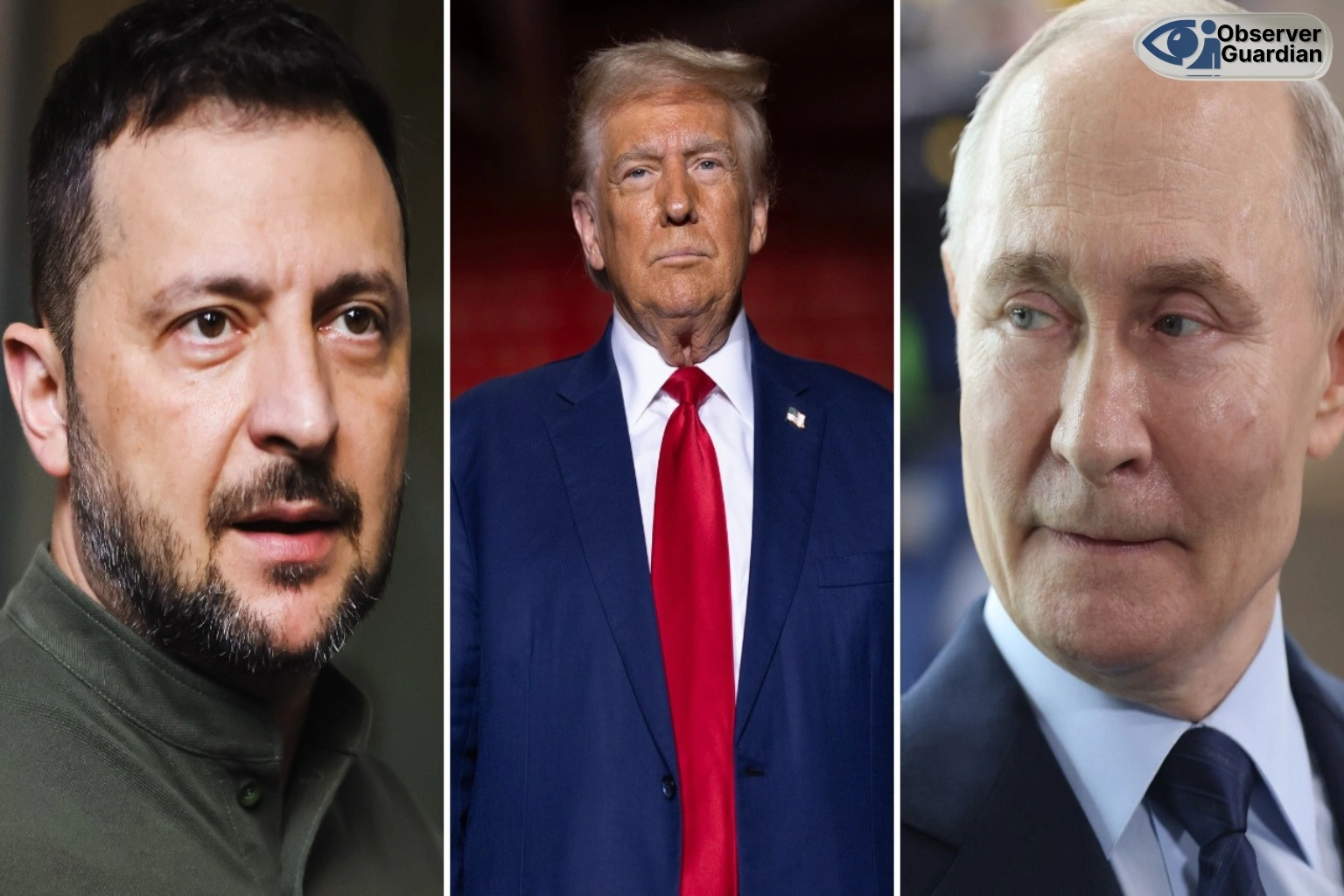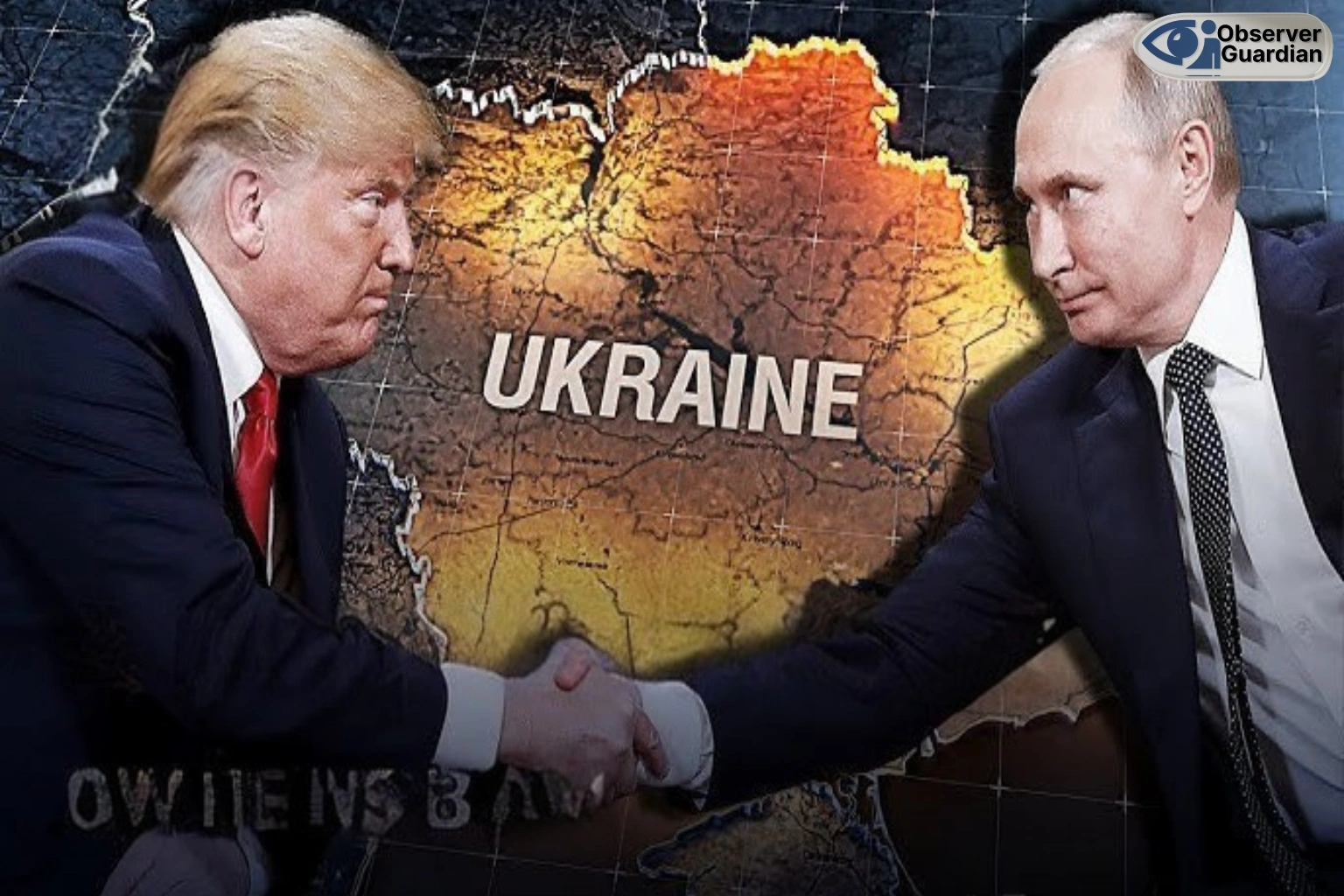The recent endorsement of the so called land for peace plan by US President Donald Trump in support of Vladimir Putin has again raised the debate on international relations. It is concerning the future of Ukraine, the credibility of NATO and ethical considerations of the great powers. Is peace attained based on compelled territorial concession ever a just peace? Or would it merely encourage the use of aggression and prescribe such actions in the future? The conflicting implications of real politic and principle are reflected by Trump supporting the plan of Putin and the implications of his position are likely to be felt far beyond the borders of Ukraine.
The attractiveness of the speedy peace
Trump point of view might argue that Ukraine has proved another point after several twenty-two months of ruthless conflicts and its infrastructure is devastated. Their population scattered and its economy is on life support. The West is also tiring and there are indications of political division in Washington as well as of lost European solidarity on keeping up military support. It is against this background that the notion of a cease fire that is done through territorial compromise provides a quick means to hush the guns and save lives and economically stabilize the world. The option of ending the war soon holds a lot of appeal to many voters especially United States citizens who are thinking of Trump because he insists it is an indicator of his business advantage.
The Reward of Aggression Problem
But there is a dark side of the solution as the land for peace formula is a serious threat. It has a clear-cut effect of justification towards Russia invasion giving Putin what he wanted via military action ultimate control to a section of a sovereign state.
Should the international community encourage aggression against other forces, or should it discourage and deter aggression to avoid setting a precedent that other authoritarian regimes might follow?
China can use such a deal as a go ahead signal to move on Taiwan and other wrangles like the Balkans and Caucasus may flare up in the shadow of such precedence. Although peace can be adopted in short term and it would be at the expense of international rule of law and the idea that violence cannot be used to change the international boundary markers.

Ukraine’s Gaze Counts
The absence of a direct tack of Ukrainian itself in the endorsement by Trump may seem as the most obvious one. Ukrainians and its government have severally ruled out any form of solution that compromises its territorial integrity. To them the war is not just on territory but also on sovereignty, dignity and existence as a nation. Giving up Donbas may establish grounds on which other Russian aggression may occur and the mistrust in Western friends. When it comes to the Ukrainians and they cannot view the moral aspect of the war as independent of the geopolitical one. Asking them to abandon their houses in the name of an immature ceasefire will be punishing the victim and not the perpetrator.
The Transatlantic Border
The attitude of Trump also represents an uprising gap in the West alliance. Although European leaders even in the NATO are still at least nominally committed to the right of Ukraine to protect its own territorial integrity. The Trump’s method of doing business is readiness to promote transactional agreements before the common democracy. In case he is elected to the presidency again as there would be a change in U.S. policy toward Ukraine and that would fracture the extent of the NATO bloc and allow Moscow to become bold. Not only would this be a threat to the future of Ukraine but also the international system of security which has led to relative stability in the world since World War II.
The pretense of permanence
The supporters of the land for peace believe that give and take is the nature of diplomacy. History has its sobering lessons though. Such debates have cited the 1938 Munich Agreement which albeit postponed war though it emboldened Hitler to ask for more. Likewise, a compromise that would give Russia sections of Ukraine could hardly give permanent peace and it might merely suspend aggression until the time when Moscow feels like attacking once again. Stability cannot be achieved by addressing symptoms but solving the actual cause of the conflict i.e. Russian imperial ambitions instead of covering up the problem with away the territories.
By advocating the proposal of Putin and Trump might attract a certain group of people who are in an urgent need of the issue to be solved but that might bring havoc. True peace must be based on justice, recognition of sovereignty and a deterrent to aggression. Less than that would amount to betrayal of Ukraine, a break in western unity and a weakening of the very principles that protect international order. The world must pursue peace but not on any cost. Giving up Donbas as a sacrifice to a tyrant like Putin would be a perilous act towards normalizing conquest in the 21st century and the result could be much catastrophic than the war that are fighting to end.
Disclaimer: The views and opinions expressed in this article are exclusively those of the author and do not reflect the official stance, policies, or perspectives of the Platform.








